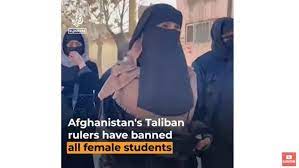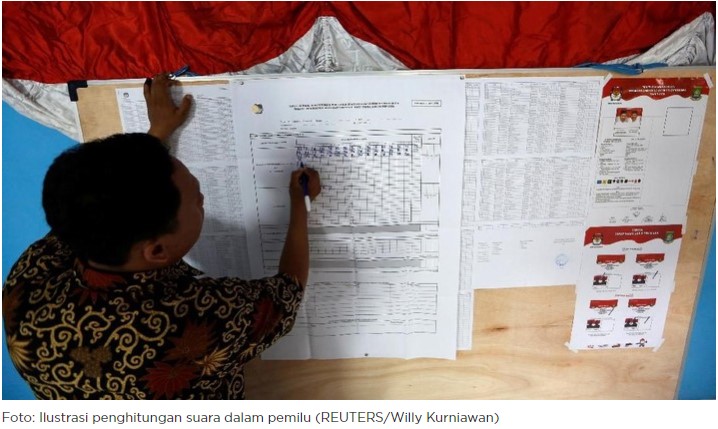
Pemilu-Reuters
STRATEGIC ASSESSMENT. Anies Rasyid Baswedan and Muhaimin Iskandar became the first presidential and vice presidential candidates for the 2024 elections after their declaration. The pair was declared in Surabaya, a day after the National Awakening Party (PKB) accepted an offer from the NasDem Party to pair Anies with none other than the PKB Chair. NasDem Party Chair Surya Paloh, who attended the declaration, emphasized that the pair would be the first presidential and vice presidential candidates to register with the General Election Commission (KPU).

The surprise decision by the NasDem Party and PKB to pair former Jakarta governor Anies Baswedan and PKB leader Muhaimin Iskandar as presidential and vice presidential candidates is expected to have a wider ripple effect on the reconfiguration of the political alliances ahead of next year’s election.
Prospective presidential candidate Anies Baswedan said on Sunday that he respected the Democratic Party’s decision to leave the Coalition for Change for Unity following the declaration of his paring with Muhaimin Iskandar. Anies said that his party is grateful that the Coalition, which includes NasDem, PKS, and PKB, is becoming more solid.
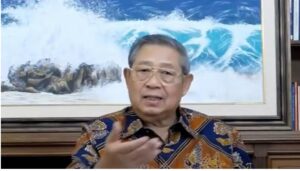
Democratic Party High Council Chair Susilo Bambang Yudhoyono (SBY) on Friday said there was a “mastermind” behind the determination of Anies Baswedan’s duet with Muhaimin Iskandar for the 2024 elections. SBY said that there was a Jokowi cabinet Minister who was lobbying the Democrats to form a new coalition with the Prosperous Justice Party (PKS) and the United Development Party (PPP). SBY called the minister’s move, with the knowledge of Pak Lurah (a title often given to Jokowi by politicians), untrustworthy.
Two days after the Anies Baswedan-Muhaimin Iskandar declaration, the Democratic Party held an internal consolidation plenary meeting at the party’s headquarters in Jakarta. During the meeting, Democratic Party Chair Agus Harimurti Yudhoyono (AHY) urged his party cadres to be sincere and continue to fight for ethical democratic values. This was in response to his party’s departure from the pro-Anies Baswedan coalition.

Democratic Party High Council Chair SBY praised the way Indonesian Democratic Party of Struggle (PDI-P) Council Chair Puan Maharani and Gerindra Party Chair Prabowo Subianto persuaded his party. SBY said this in response to NasDem Party presidential candidate Anies Baswedan unilateral decision to propose National Awakening Party (PKB) Chair Muhaimin Iskandar as his running mate in the 2024 presidential election. SBY said that the PDI-P and Gerindra methods were superior to the mysterious “underground maneuvers.”

Gerindra Party Chair and presidential candidate Prabowo Subianto of the Advanced Indonesia Coalition denied the People’s Wave (Gelora) Party’s support as a comfort to himself because PKB had abandoned him. According to Prabowo, the departure of a party from a political coalition is natural because it is part of political dynamics.
Golkar Party Chair Airlangga Hartarto on Friday said that PKB Chair Muhaimin Iskandar did not communicate with the coalition first before deciding to collaborate with the NasDem Party.
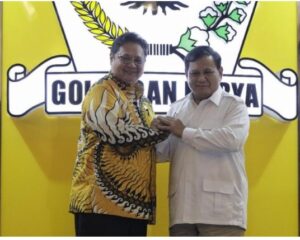
According to Airlangga, this was PKB’s decision itself. According to Airlangga, the decision was a form of independence for each party.
Recently, the issue of Indonesia’s 2024 presidential election was brought to the attention of international media, specifically Reuters. This time, it is about Anies Baswedan and Muhammad Iskandar, the presidential and vice presidential contender duo. According to Reuters, this step was taken to boost Anies’ popularity. Reuters wrote that Anies was trailing two other candidates, Prabowo Subianto and Ganjar Pranowo, in a number of polls. According to the story, PKB Chair Muhaimin Iskandar has strong ties with Indonesia’s largest Islamic organisation, Nahdlatul Ulama (NU), which has 40 million members.
In a press conference held at the Nahdlatul Ulama (NU) Office in Central Jakarta, NU Executive Board Chair Yahya Cholil Staquf denied claims from PKB that named presidential and vice presidential candidates Anies Baswedan and Muhaimin Iskandar received blessing from the Islamic organization’s kyai (prominent ulemas). Yahya encourages all political parties and presidential candidates to run in a positive manner. He said that the NU did not appoint or support a specific candidate in this year’s presidential election.

The coalition of political parties supporting Ganjar Pranowo’s presidential nomination reached an agreement to appoint Arsjad Rasjid, chairman of the Indonesian Chamber of Commerce and Industry (Kadin), as the leader of the campaign team. Arsjad will lead a team comprised of representatives from each party involved, namely Perindo, the Indonesian Democratic Party of Struggle (PDI-P), the United Development Party (PPP), and the People’s Conscience Party (Hanura).
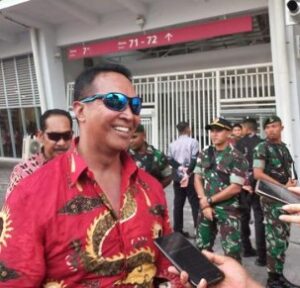
Former TNI top brass have been selecting which front-runner to support. Former TNI commander Andika Perkasa, for instance, has joined a list of potential figures to lead the campaign team of Ganjar Pranowo, the Indonesian Democratic Party of Struggle (PDI-P) presidential nominee. Andika was also tapped as the strongest vice presidential candidate from the military, along with Democratic Party chairman Agus Harimurti Yudhoyono, who quit the army to enter politics.
Ganjar Pranowo and Ridwan Kamil ended their respective gubernatorial terms in Central Java and West Java, as the two popular politicians are now set to embark on different paths heading into the February general election. Ganjar, an Indonesian Democratic Party of Struggle (PDI-P) politician who had served as Central Java governor for two full terms, is going to contest next year’s presidential election.
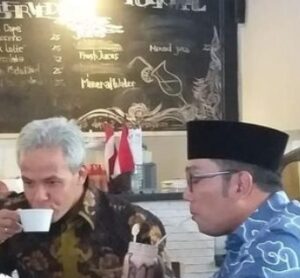
Meanwhile, Ridwan, a Golkar Party politician, once said he was open to running for reelection as West Java governor in 2024 despite having risen in public opinion polls as a popular choice for the vice presidency. Next year’s regional elections are set to be held in November after the February presidential and legislative elections.
Indonesian opposition figure Anies Baswedan named his running mate over the weekend in hopes of bolstering support from the country’s largest Islamic party, but observers say while the move might soften his hardline image, it also presents the threat of internal party strife, posing a risk for his presidential run.
Observers say a drastic step might have been on the cards for Anies, who has been trailing in opinion polls for months. Experts are also wary of the potential for tension and infighting within Anies’ camp with the joining of Muhaimin’s PKB party. Of particular concern is the reaction of the Islamist Prosperous Justice Party (PKS).

PKS was criticized Anies Baswedan for a lack of communication after he abruptly picked an outsider as his running mate without prior consultation with two members of the coalition backing his presidential bid. While the Muslim-based organization ultimately accepted Muhaimin Iskandar as Anies’ ticket mate, it expressed regret over the process that did not allow enough time for all members of the three-party coalition to sit together and discuss the matter properly. It has been revealed that Muhaimin’s appointment was decided exclusively by NasDem Chair Surya Paloh and Anies.
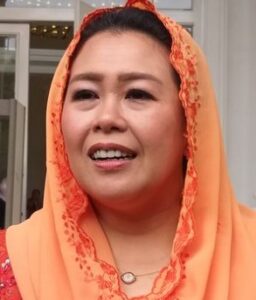
Presumptive presidential nominee Prabowo Subianto hosted Yenny Wahid, the daughter of the former leader of the country’s largest Muslim organization Nahdlatul Ulama (NU), in what could be a search for his running mate after a party widely associated with the NU switched sides to a rival camp.
Speaking to reporters after their meeting, Yenny sang her praises of Prabowo, describing him as a leader who has “an extraordinary vision” and putting him “at the top priority list” among potential candidates to forge closer ties with.
The coalition of political parties supporting Ganjar Pranowo’s presidential nomination reached an agreement on Monday to appoint Arsjad Rasjid, chairman of the Indonesian Chamber of Commerce and Industry (Kadin), as the leader of the campaign team.
Hary Tanoesoedibjo, chairman of the United Indonesia Party (Perindo), said that Arsjad represents the younger generation with an extensive network and knowledge. “He is young, agile, and well-educated, with a well-established network as the chairman of Kadin,” Hary told reporters following the inter-party meeting in Jakarta.
The United States monitors Indonesia’s presidential election, seeing from the U.S. Chamber of Commerce website on Sep. 5. The agency’s Southeast Asia director, Shannon Hayden, wrote an analysis, “Will elections in Indonesia bring relations with the United States closer?”. She specifically mentioned one of the presidential candidates Prabowo Subianto.
She said Prabowo’s trip to the United States allowed him to advocate for his domestic priorities through increased U.S.-Indonesian engagement, including creating jobs and economic opportunities through cooperation in food security, international educational exchange, technological innovation, and other matters.
Dr. James M. Dorsey, Senior Fellow at the National University of Singapore’s Middle East Institute and Adjunct Senior Fellow at Nanyang Technological University’s S. Rajaratnam School of International Studies, an unexpected twist in the run-up to next year’s Indonesian presidential election puts Centrist Democratic International (CDI), the world’s largest alliance of conservative political parties, and Nahdlatul Ulama, the world’s largest and most moderate Muslim civil society movement, in a bind. In a surprise move, Muhaimin Iskander, leader of the National Awakening Party (PKB), founded in 1998 by five Nahdlatul Ulama clerics, including the movement’s one-time leader and former Indonesian president Abdulrahman Wahid, joined Anies Baswedan, as his vice-presidential candidate. A US-educated political scientist and former Jakarta governor with close ties to conservative Muslim circles and a penchant for identity politics, Mr. Anies is supported in next February’s election by the Prosperous Justice Party (PKS), the PKB’s arch-rival widely believed to be affiliated with the Muslim Brotherhood. “This is concerning,” said a senior CDI official.
Meanwhile, Virdika Rizky Utama, researcher at PARA Syndicate and Graduate Student in Political Science at Shanghai Jiao Tong University, Indonesian has never been a stranger to intriguing political alliances, but the Anies Baswedan-Muhaimin Iskandar candidacy for the upcoming 2024 presidential election might be one of the most fascinating. Their ticket is backed by an unlikely coalition – including the National Awakening Party, the National Democratic Party (Nasdem) and the Prosperous Justice Party (PKS) – that stitches together a disparate patchwork of ideological and religious interests. On the surface, the partnership bridges the modernist and traditionalist Islamic ideologies, but beneath the surface there are signs of more complex political manoeuvring.
U.S. Chamber of Commerce’s Southeast Asia Director Shannon Hayden wrote an opinion piece regarding the 2024 Indonesian election which was published on Sep. 5, highlighting Prabowo Subianto’s manoeuvres in visiting the United States to sign defense deals, advocate for his domestic agenda, and engage the Indonesian people in Washington.
Shannon said several times that Prabowo was superior to Ganjar Pranowo and Anies Baswedan in the 2024 presidential election, and that President Jokowi had signaled that Prabowo would continue his leadership baton. She also wrote that Prabowo had been refused entry to the United States due to issues of human rights violations, but the ban had been lifted.
The Indonesian Democratic Party of Struggle (PDI-P) Secretary General Hasto Kristiyanto was defended Ganjar Pranowo, who was accused of spreading identity politics by appearing on a private television station during the Maghrib call to prayer or azan. According to Hasto, identity politics has so far only been expressed by a few parties with no track record or achievements in developing the country.
Golkar Party Deputy Chair Ahmad Doli Kurnia said that the party proposed Chair Airlangga Hartarto to become the vice-presidential candidate for Prabowo Subianto, not Ridwan Kamil. He also denied the Indonesian Democratic Party of Struggle’s (PDI-P) claim that Ridwan Kamil was proposed as Ganjar Pranowo’s vice presidential candidate. The party indicated their intention to nominate Ridwan Kamil for the upcoming gubernatorial election in either West Java or Jakarta.
Regardless of the outcome of the upcoming presidential election, business and investment relations between Indonesia and China will remain strong, analysts say, though they expect one candidate to bring home slightly more if elected, while another might do the opposite. The relationship between Indonesia and China was likely to remain friendly under either Central Java Governor Ganjar Pranowo or Defense Minister Prabowo Subianto, according to Wen Chong Cheah, a research analyst at the Economist Intelligence Unit (EIU). However, under former Jakarta governor Anies Baswedan it is likely to “cool-down” slightly, he told The Jakarta Post.
Perhaps there is no mass organization more influential during election years than Nahdlatul Ulama (NU), the traditionalist Islamic organization that analysts say could decide the outcome the tight 2024 presidential election.
Its expediency as an electoral instrument is comparable only to Pemuda Pancasila (PP), the paramilitary group established by the powerful elites of the New Order that is often used as a vehicle to mobilize the masses for various political purposes.

The General Election Commission (KPU) has confirmed that no action will be taken against presidential candidate Ganjar Pranowo, who recently appeared in a televised advertisement while preparing to perform a prayer, a move criticized by some as a demonstration of “identity politics.”
The video accompanies the Muslim call to prayer, known as the Adhan, which is commonly broadcast by Indonesian television networks, particularly at dawn and sundown. However, since Ganjar has not yet officially registered as a candidate with the KPU, he cannot be charged with engaging in early political campaigning, KPU Commissioner Idham Holik told reporters in Makassar.
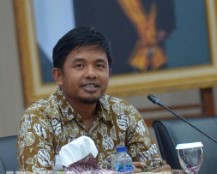
John McBeth, journalist and author, for the best part of a year, Defense Minister and Great Indonesian Movement Party leader Prabowo Subianto had kept National Awakening Party (PKB) coalition partner Muhaimin Iskander dangling over whether he would choose him as his running mate for next February’s presidential election. Together, the two parties had more than the 20% of parliamentary seats necessary to nominate Prabowo as a candidate, but with the Golkar and National Mandate (PAN) parties recently joining Prabowo’s campaign team, Iskander finally lost his usefulness. And he knew it.
When asked to choose between democracy and a strong leader, Indonesians overwhelmingly chose the former, according to a report by Pew Research Centre released. While half or more of respondents from Sri Lanka, Malaysia and Singapore would rather rely on a strong leader, 85 percent of Indonesian respondents said they would opt for a democratic form of government.
Younger voters have long been a major factor in Indonesian elections. Ahead of the February 2024 general election, analysts and pundits point to the large number of those who will have just turned 17 and are able to vote. Recent research estimates that the current 17–39 age demographic will make up 60 percent of eligible voters in the 2024 Indonesian general election. Campaigns by the General Elections Commission, political parties and youth organisations aim to increase political participation throughout the electoral cycle. There are increasing concerns over political apathy and dissatisfaction with the political system.
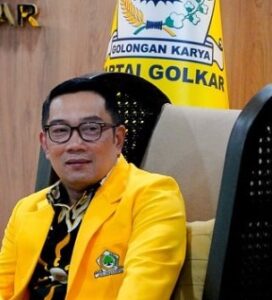
Former West Java governor Ridwan Kamil had received an offer to run for the vice presidency in 2024 alongside presumptive nominee Ganjar Pranowo of the Indonesian Democratic Party of Struggle (PDI-P), Golkar Party deputy chairman Ahmad Doli Kurnia confirmed. At that time Pak [Mr.] RK was invited by Ibu [Mrs.] Megawati, who offered him to be [Ganjar’s] vice president,” Doli said, referring to Ridwan by his initials. “The reason behind the proposal is that Pak Ganjar needs a figure who can help boost his [ratings] in West Java.”
The general political parties’ chairs who are members of the coalition supporting Prabowo as Presidential candidate held a meeting at the Golkar Party headquarters in Jakarta. The meeting was held amid the issue of Prabowo’s running mate determination. During the meeting, they discussed 12 programs that Prabowo offered to the coalition. Prabowo also met with former West Java Governor Ridwan Kamil. The meeting between the two has made the possibility that Kamil will become a vice presidential candidate for the rival coalition less certain.



